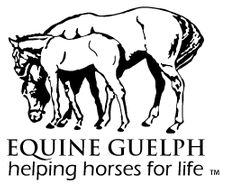The Importance Of Vaccination
Strong lines of communication now keep the equine industry up to date when it comes to disease outbreaks. A pivotal part of your sickness prevention plan should include a vaccination program.
Only vaccination can prevent death from certain diseases, such as rabies, which has seen its fair share of announcements of late in certain parts of Canada. Dean Wichtel of the Ontario Veterinary College says, “according to new information presented at an Ontario Association of Equine Practitioners meeting, the need for vaccination is greater than ever, with emerging new disease patterns that may be due in part to climate change.”
In times where kids cannot attend school unless they produce up-to-date immunization records, we need to think of horses in the same way. The FEI requires proof of equine influenza vaccinations for horses competing at FEI events. Competing or not, any horse that travels to events, or comes into contact with horses that travel, are exposed to inherent risks of contracting disease.
A great starting point for horse owners and veterinarians to discuss their annual vaccination program is Equine Guelph’s healthcare tool – the Vaccination Equi-Planner. Horse owners are asked to complete six questions that help determine individual farm differences and risk factors, including: age, use, sex, exposure to outside horses and geography. This data is then compiled in a program, and a printable customized vaccination schedule is provided for each horse.
 Horses tend to receive their first influenza shots of the year in the springtime in anticipation of outings and increased exposure to pathogens. “Equine influenza remains one of the most frequent and contagious respiratory tract diseases in horses,” says Dr. Serge Denis, equine consultant with Merck Animal Health. “As is the case on the human side, the equine influenza virus evolves over time (although at a less rapid pace). Therefore, the use of a vaccine including recent strains of equine influenza which meets AAEP’s and OIE’s recommendations is highly desirable in order to optimize coverage.”
Horses tend to receive their first influenza shots of the year in the springtime in anticipation of outings and increased exposure to pathogens. “Equine influenza remains one of the most frequent and contagious respiratory tract diseases in horses,” says Dr. Serge Denis, equine consultant with Merck Animal Health. “As is the case on the human side, the equine influenza virus evolves over time (although at a less rapid pace). Therefore, the use of a vaccine including recent strains of equine influenza which meets AAEP’s and OIE’s recommendations is highly desirable in order to optimize coverage.”
“The decision as to whether or not to vaccinate your horse against a particular disease is based on the risk associated with your horse becoming infected with certain disease-causing pathogens,” says Dr. Alison Moore, the lead veterinarian of animal health and welfare at the Ontario Ministry of Agriculture, Food and Rural Affairs. “Owners of horses that travel for competition need to know the diseases endemic to the areas to which they are travelling to properly protect their horse. Websites such as the Equine Disease Communication Centre (EDCC) can help inform owners regarding disease risk in certain areas. Your veterinarian should also be made aware of your travel plans and be consulted regarding which diseases are in your home area so the most effective vaccination program can be designed.”
Beyond vaccinations for diseases such as eastern equine encephalitis (EEE) and West Nile, there are more precautions to help deter the spread of diseases transmitted via insects. Removing breeding grounds can be accomplished by eliminating standing water (e.g. old water feeders, tires around the property) and getting rid of puddles by improving drainage.
Keeping manure storage as far away from the barn as possible, but accessible for staff is helpful. Fly zappers and tapes can be beneficial. There are also products that can be fed to horses to interrupt the development of fly larvae in the horse’s manure (feed through fly control). Fly bait can also be useful but should be used with caution if dogs and cats are around. Other options to control flies and mosquitoes include insecticide impregnated blankets/sheets and the traditional fly sprays.
Disease should always be a concern if you are a horse owner and spring serves as a reminder to check your horses’ vaccination records. Equine Guelph’s Vaccination Equi-Planner, sponsored by Merck Animal Health, is a useful tool designed for horse owners to generate personalized immunization schedules for their horses.
(Equine Guelph)

